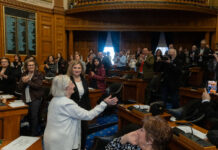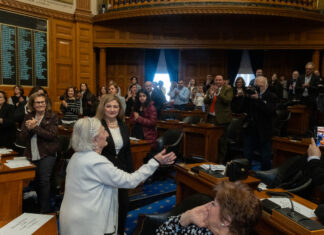By Aram Arkun
Mirror-Spectator Staff
BELMONT, Mass. — Turkish Armenian politician and activist Garo Paylan continues to be an extremely outspoken political actor in Turkey despite all the political risks this entails. He is a founding member of the pro-Kurdish Peoples’ Democratic Party of Turkey (HDP) and a deputy in the Turkish National Assembly representing the third district in Istanbul. He was giving talks in the United States, including in the Boston area, in October of this year, and spoke briefly in private about the state of affairs in Turkey.
At that time, the situation in the provinces was already dire, especially for Kurds during the government’s war against the Kurdistan Workers Party (PKK), and many of Paylan’s fellow HDP deputies had been stripped of their parliamentary immunity and arrested. The Erdogan government was also cracking down on all opposition under the pretext of uprooting supporters of the botched coup attempt in July 2016. Paylan said then that “we almost have a civil war, with 30-40 dead bodies every day. We have to stop the fire.”
At the end of November and early December of this year, Paylan protested hate crimes against Armenians, Jews and Syriac Christians and through parliament asked the government to take appropriate measures. He also called for an apology after Turkish Deputy Prime Minister Numan Kurtulus used the word “gavur” or infidel. Paylan has been very involved in defending the rights of Armenians living in Turkey, both as a participant in commemorations of the Armenian Genocide, and in protecting their human rights.
Kurtulmus on December 3 boasted of “new Turkey” being shaped under the wings of the ruling Justice and Development Party (AKP) which he said stood against imperialism or exploitation.









